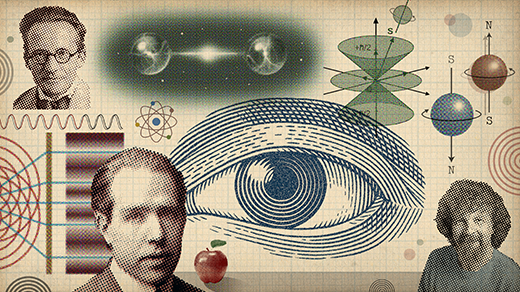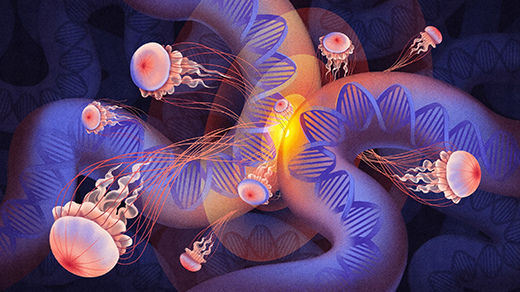Latest Articles
Are the Mysteries of Quantum Mechanics Beginning To Dissolve?
Columnist Philip Ball thinks the phenomenon of decoherence might finally bridge the quantum-classical divide.
Loops of DNA Equipped Ancient Life To Become Complex
New work shows that physical folding of the genome to control genes located far away may have been an early evolutionary development.
A Thermometer for Measuring Quantumness
“Anomalous” heat flow, which at first appears to violate the second law of thermodynamics, gives physicists a way to detect quantum entanglement without destroying it.
Why Everything in the Universe Turns More Complex
A new suggestion that complexity increases over time, not just in living organisms but in the nonliving world, promises to rewrite notions of time and evolution.
The New Math of How Large-Scale Order Emerges
The puzzle of emergence asks how regularities emerge on macro scales out of uncountable constituent parts. A new framework has researchers hopeful that a solution is near.
The Best Qubits for Quantum Computing Might Just Be Atoms
In the search for the most scalable hardware to use for quantum computers, qubits made of individual atoms are having a breakout moment.
A ‘Lobby’ Where a Molecule Mob Tells Genes What to Do
Highly repetitive regions of junk DNA may be the key to a newly discovered mechanism for gene regulation.
‘Embryo Models’ Challenge Legal, Ethical and Biological Concepts
With embryolike constructs built entirely from stem cells, researchers can revolutionize our understanding of development. But how close to an embryo is too close?
A New Idea for How to Assemble Life
If we want to understand complex constructions, such as ourselves, assembly theory says we must account for the entire history of how such entities came to be.









